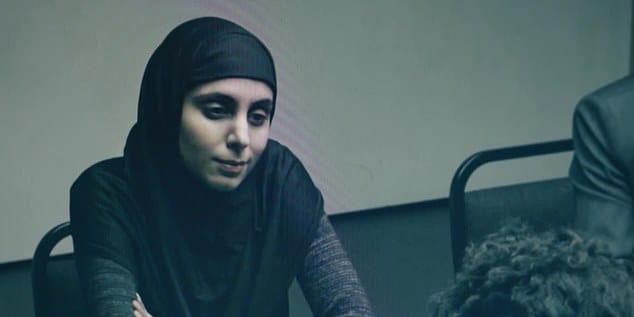TV Review: BBC's Bodyguard Continues to Trope Islamophobia

Bodyguard. The BBC drama that was filmed just outside SOAS and the show that got the nation talking, including myself. So much so, that after episode five, I was inclined to write a review, praising the show for its clever twist on topics of terrorism and white-collar crime. I’m extremely glad I didn’t.
Scene One. A train arriving into London Euston was carrying a suicide bomber. Dressed in a hijab (headscarf) and with a South-Asian accent, the suicide bomber was a brown Muslim woman, and she was being set up by her misogynistic, brown, Muslim husband. You’d be excused, as a POC and/or Muslim, to switch the TV off before the scene had even concluded. Nonetheless, I persisted in watching the drama unfold. I was interested to see how the BBC had so overtly been able to play into such racist, hateful stereotypes.
‘Institutional Islamophobia has become so normalised that it is not surprising that the BBC would see the incrimination of a Muslim, immigrant woman, as more palatable than exposing government corruption.’
By episode five I was growing hopeful, despite the second bump in episode four where another brown, Muslim government aide named Tariq Mahmood, was accused of killing the Home Secretary. Nonetheless, this plot-line was eventually creased out as the storyline continued to unravel into an interesting message about unaccountability of security services in government, white-collar crime, and the use of ethnic and religious minorities as scapegoats in a white man’s game. Everyone knows the oldest trick in the book; politics is a dirty game. Perhaps, once, the BBC were taking initiative in delivering difficult narratives about the abuse of power.
But suddenly, in the last few moments of the show’s season finale, Nadia Ali, the hijab-wearing immigrant, was brought back into the plot as she admitted to being behind the entire terrorist plot. I had finally lost all hope and surrendered to what became yet another disappointing representation of Muslims on popular TV.
“I built all the bombs. You all saw me as an oppressed Muslim woman. I am an engineer. I am a jihadi.”
“Which bombs?”
“The one used to kill the Home Secretary.”
My initial reaction, as purely an avid enthusiast of good, high-tempo crime drama, was utter bewilderment. The plot twist made no sense. Here was a character whose story transpired when she successfully identified the secret associate of the Security Service as involved in a terrorist plot. It was a storyline that had taken a unique turn towards unravelling a very interesting government conspiracy within the back corridors of Whitehall. A phenomenal storyline, if executed well. But it wasn’t. Instead, we received an anti-climatic ending that was confusing, to say the least. So Richard Longcross, the man that PC Budd had spent episodes trying to catch, that was an arrogant, unaccounted character who’d been caught red-handed trying to steal incriminating government activity, was just a red herring? How pointless? It seems as though in the last few moments of handing in the script, the plot was forcibly changed to this predictable and highly disappointing ending that played directly into racist stereotypes. Yet another drama that, in the end, failed to deliver.
But this lousy ending was no lazy move. In fact, institutional Islamophobia has become so normalised that it is not surprising that the BBC would see the incrimination of a Muslim, immigrant woman, as more palatable than exposing government corruption. As a result of this continual representation, Muslim women have become the most visible targets of Islamophobic hate crime, and brown-skinned citizens, including Sikh men, are looped into what is depicted as the stereotypical representation of a terrorist, despite the fact that white, angry men are now accountable for more terrorism arrests than any other group. Nevertheless, Muslims still remain the biggest target, and the BBC, who regularly give airtime to far-right extremists, such as Steve Bannon and Anjem Choudhary, continue to lousily perpetuate stereotypes whilst remaining unaccountable for the rise in hate crime towards innocent British citizens. Ultimately, crime towards marginalised groups will not reduce as long as media producers are not held accountable for their complicity in creating a British society that is hateful.
KHADIJA KOTHIA, BA HISTORY
MANAGING EDITOR OF THE SOAS SPIRIT




